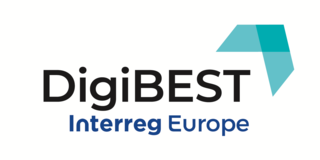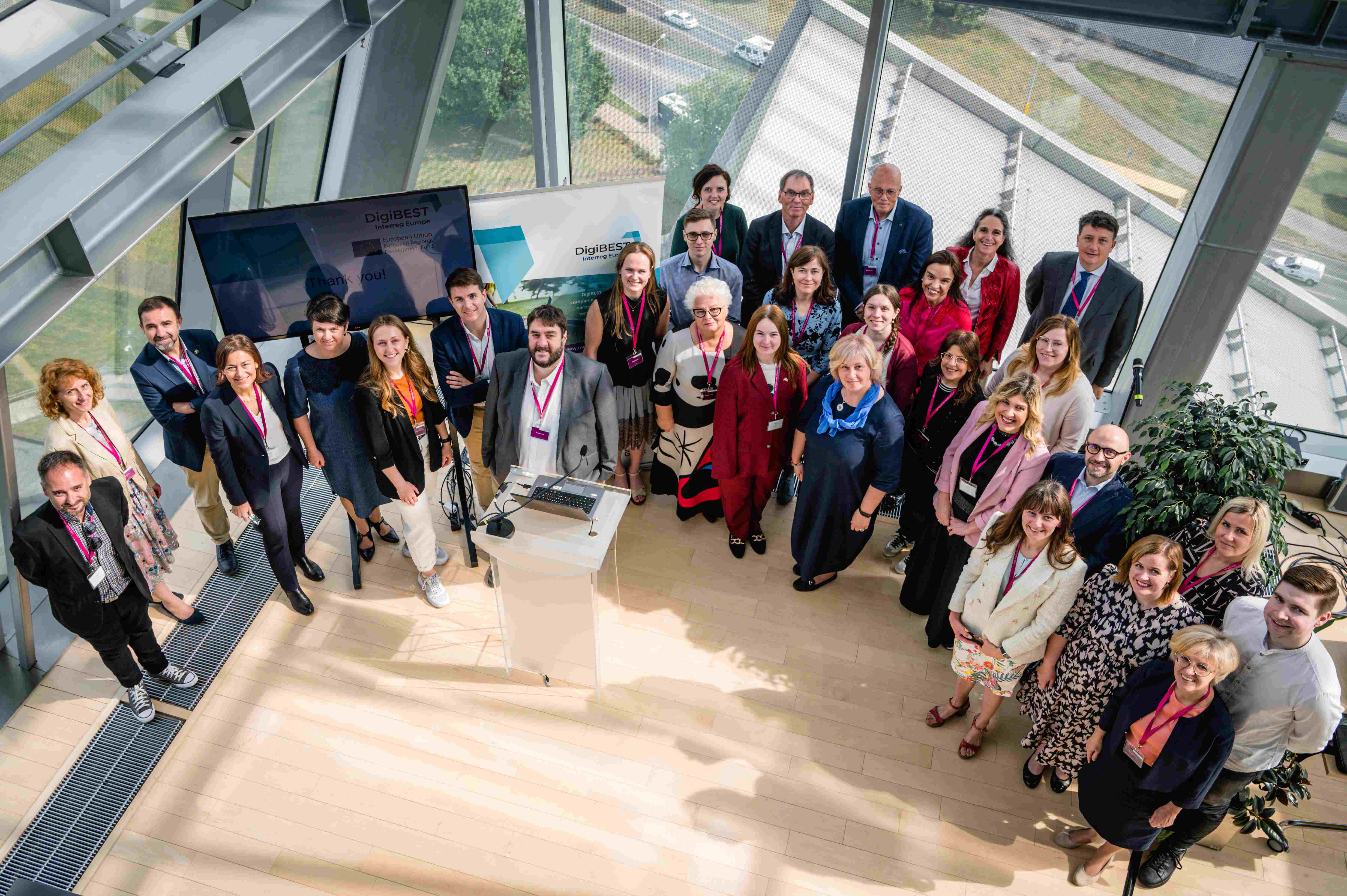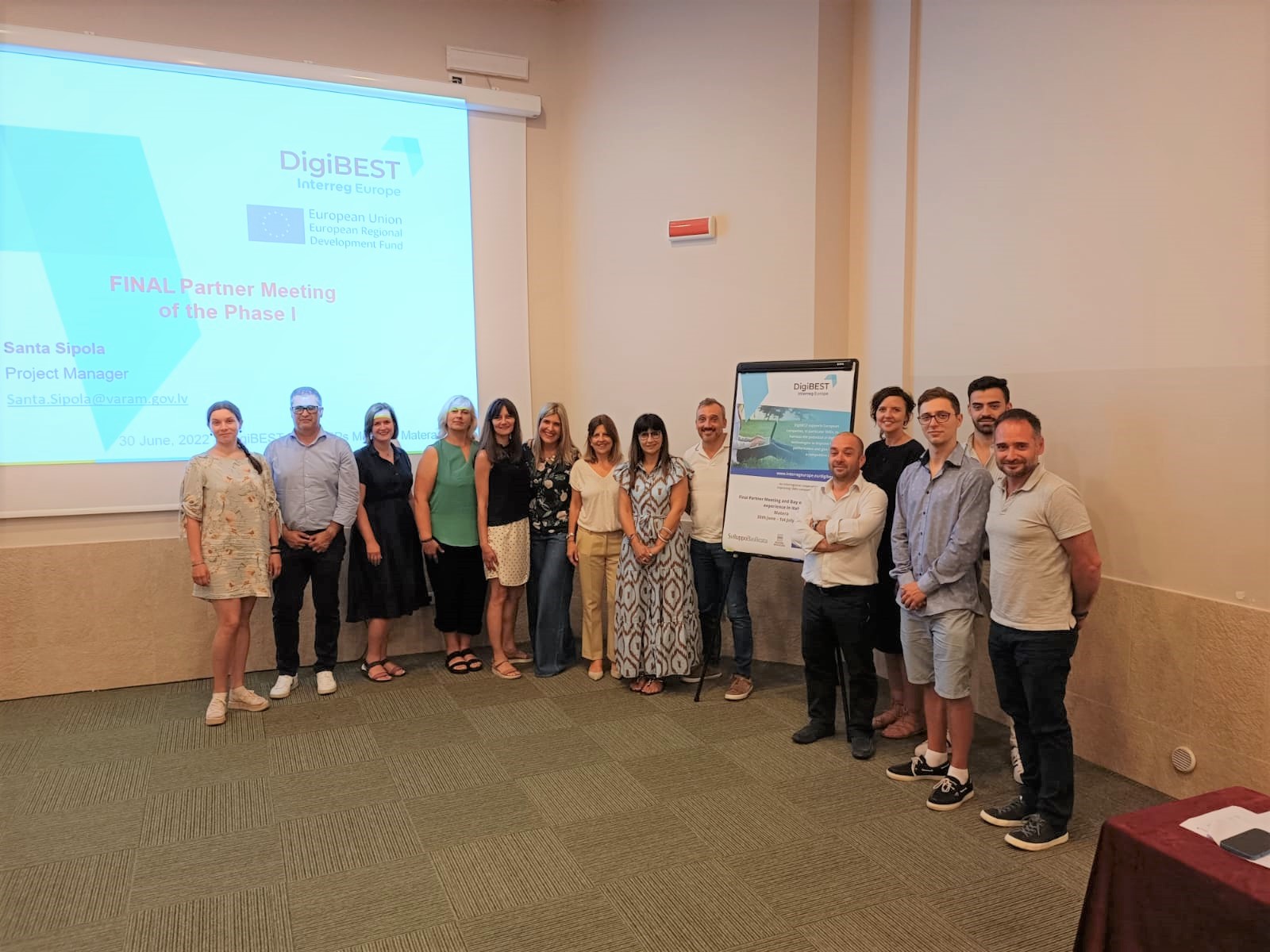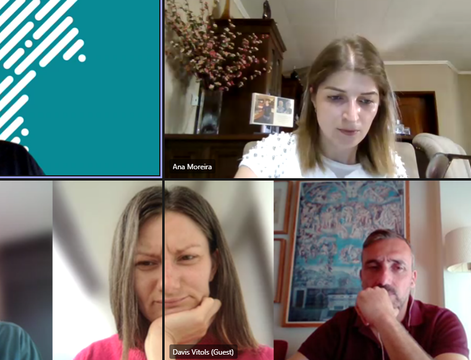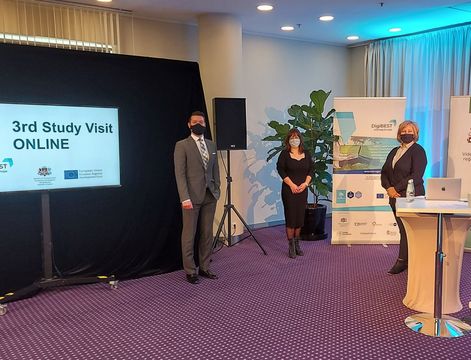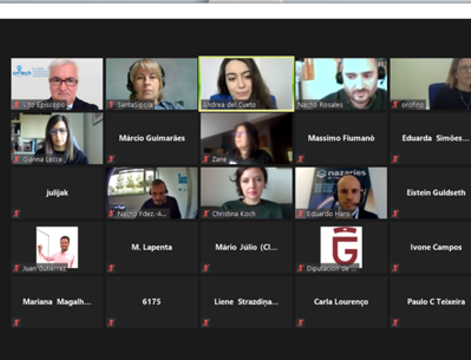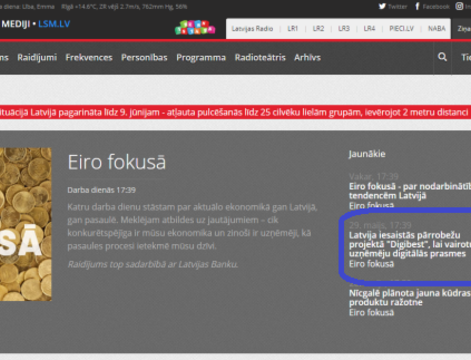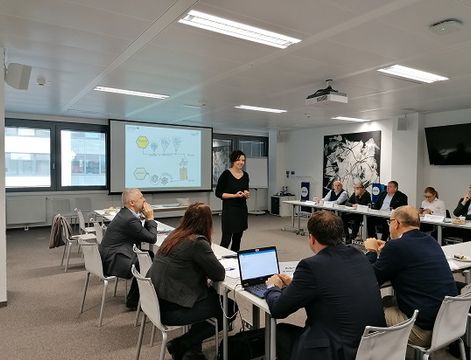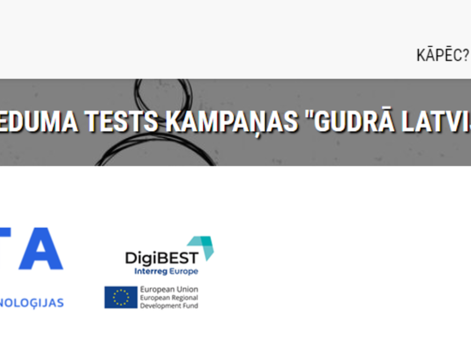After 3 years of continues work on exchanging policy improvement experiences and good practices in the field of SMEs digital transformation, in July the Phase 1 of the DigiBEST project has ended.
The number of activities and work done is impressive – 6 regionals studies, 6 peer reviews and 6 Business Digital Transformation Assessment Surveys are done, 66 stakeholders got involved, all together 6 study visits, 30 stakeholder meetings, 14 committee meetings were organized, 52 good practices promoted, 6 informative videos done. But most importantly, every partner has developed an action plan, how to promote digitization and thus the competitiveness of SMEs in the regions and countries covered by the project. These action plans will be implemented in the second phase of the project, which starts on August 1st this year and will last until July 31st, 2023.
Project partners had to adapt to Covid-19 pandemic circumstances, which in this case was not an obstacle, but an opportunity to prove to themselves – digital transformation (DT) is the only way forward. Project achieved remarkable results while changing the approach of work and collaboration by exploring new, previously unused digital tools. DT is about the evolution of technologies, but especially about a willingness to adopt and grow.
To achieve the above-mentioned results, a great contribution was made by the Advisory partner - the University of Latvia, which prepared the methodologies, helped in the preparation and organization of the Peer Reviews, reports, evaluating the Action Plans, as well as summarizing the results.
The main goal of the DigiBEST project and thus of action plans is to promote and support the competitiveness of SMEs and to offer solutions for the digital transformation, especially in rural territories, using modern technologies and new innovative business methods, promoting sustainable and inclusive growth in Europe and its regions. The DigiBEST phase 1 was devoted to the investigations of the priority challenges and potential solutions, exchange of experience, learning lessons that resulted in drafting the main output of the project set of measures fostering DT of SMEs and improving the addressed policy instruments of partners. Latvia – lead partner of the project – has committed to reduce fragmentation of the available information on DT of SMEs. A one-stop platform, using the existing platform, will be created to provide SME-tailored information, business-oriented services, as well as containing Knowledge Bank with learning materials to foster digital knowledge of SMEs. For raising awareness and understanding of the benefits and opportunities offered by transformation, a Digital Maturity Test followed by individual consultations and trainings will be provided for entrepreneurs.
Trøndelag region in Norway has aimed to improve policy instrument to stimulate DT at the regional level and to implement the relevant actions – including the term “DT” into the main government strategy document for Trøndelag, including farmers as a new target group with a higher status, organization of SME training to facilitate ecosystem, and introducing an additional research activity for improved understanding of the DT needs of SMEs.
Basilicata region in Italy undertakes the implementation of new digitalization services for SMEs, such as an online self-assessment tool and OpenLab activities in the frame of the project “IncHUBatori” competence center to spread the digital culture and to boost technological knowledge and skills.
Province of Granada in Spain on the other hand is going to promote the digitalization culture and its advantages among SMEs from rural areas through organization of the awareness-raising campaign. Province is going to create a capacity building program for DT through improvement of both digital skills and financial capacity to undertake actions to digitalize companies (personalized technical assistance, dissemination events, activities on funding opportunity).
Austria is reissuing the AWS funding program “Industry 4.0” – that should support companies in being a successfully digitalized company, moreover, adding elements that are not immediate digital elements. Austria is also initiating a new funding initiative – “transformation to an economically, ecologically and socially just food system” – to support sustainability innovation in the context of food systems with digitalization as an essential tool.
Tâmega e Sousa, Portugal is establishing a coworking space– fully equipped offices and provided services (access to digital public services, software, etc.) to support remote work. Through a partnership with ESTG, Tâmega e Sousa is also developing a free-of-charge learning program to foster basic digital skills among the population and SMEs of Tâmega e Sousa.
Learn more about DigiBEST 1st phase in our brochure.
